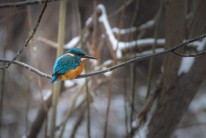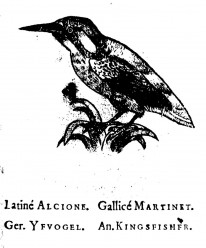- Sunshine!!
- Quote - Conversation Among the Machines the Simple Man and the Commercial Idealist; 14 July 1932
- Quote - "People in this country are disillusioned by a two-party system that thrives on despair."
- Quote - "We will love her while the light lasts, and when darkness comes, we will not forget her.”
- Quote - "disappointment ..."
- Quote - "We get so tangled up in knots, we humans, trying to think everything through, trying to guess at outcomes ..."
- Quote - "Well, I still hate novels..."
- Quote - "Everything can be divided into decades"
- Quote-"You know the worst thing about this government? the war on woke. Woke means caring for people & can only be a good thing"
- Quote - "The pleasure of what we enjoy is lost by wanting more"’
Word of the day: “Eisvogel” - German for kingfisher, literally “ice-bird”; in Russian Зимородок, lit. “winter-born”
Word of the day: “Eisvogel” - German for kingfisher, literally
“ice-bird”; in Russian Зимородок, lit. “winter-born”. Names possibly
given because kingfishers appear in new territories when their
established fishing grounds freeze in winter.
Robert Macfarlane
glas y dorlan (cymraeg -welsh) blue of the undercut bank
Michael Harvey @michaelhstory
The Bulgarian version of the name is Земеродно рибарче which could be translated as "Earth-born fisher". [
- Musings...
- Login or register to post comments
- Permalink




